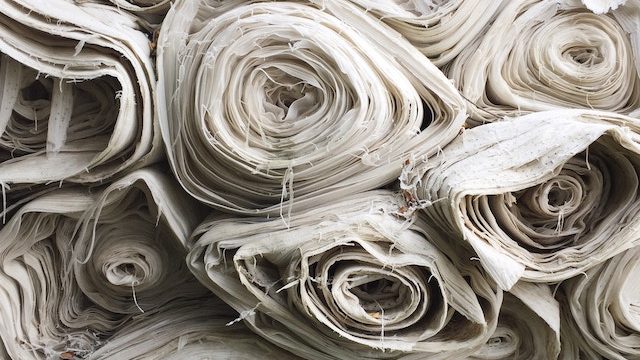On June 21, the Uyghur Forced Labor Prevention Act (UFLPA) finally came into force. This law prevents any product partially or totally manufactured in Xinjiang, northwest China, from entering U.S. territory since it is assumed that these products are linked to forced labor. The Guardian reports on the scope of this law and its impact on the fashion industry, given that 20% of the world’s cotton comes from China, and 84% of which comes from Xinjiang.
Cotton as a high enforcement priority
The UFLPA has designated cotton as a “high priority for enforcement” along with tomatoes and polysilicon. As The Guardian rightly points out, any British or E.U. fashion brands exporting to the U.S. will also be subject to this law, and failure to provide proper certification or supply chain details will result in fines of up to $250,000 (£205,000).
The ban poses major problems for the fashion industry since Xinjiang cotton is ubiquitous in supply chains, as Fashion Revolution’s Liv Simpliciano points out:
“The difficulty is that at the beginning stage [when fibres are separated from their seeds], cotton from disparate locations is mixed together, making it impossible to trace the provenance.”
Blockchain, traceability, and reputation for fashion corporations
Several tech companies, including TrusTrace, SupplyShift, and TextileGenesis, plan to use blockchain and artificial intelligence to track fashion brands’ supply chains. Brands can use the platforms to record all their purchase orders and certifications.
To conclusively prove the absence of Xinjiang cotton, brands would have to show a “complete digital chain of custody,” says Shameek Ghosh, CEO of TrusTrace, “where a brand is fully in control of its supply chain from the farm onwards.”
Due to the General Data Protection Regulation, TrusTrace is not alerted if Xinjiang cotton is found in a brand’s supply chain. “Only the brand is informed,” adds Ghosh. “They wouldn’t use a platform like this [if they’d be exposed].”
However, blockchain technology is not without its problems. “If you’re relying on brand discretion to ratify their sourcing practices, then what’s the efficacy going to be?” asked Eco-Age’s Philippa Grogan. “Also, blockchain technology is not regulated, so it creates a risk environment – the lack of regulatory oversight makes it vulnerable to market manipulation.”
Companies will no longer be able to sell products made with #UyghurForcedLabour in the US. Tell fashion brands to end #ForcedLabourFashion everywhere here.







Freedom United is interested in hearing from our community and welcomes relevant, informed comments, advice, and insights that advance the conversation around our campaigns and advocacy. We value inclusivity and respect within our community. To be approved, your comments should be civil.